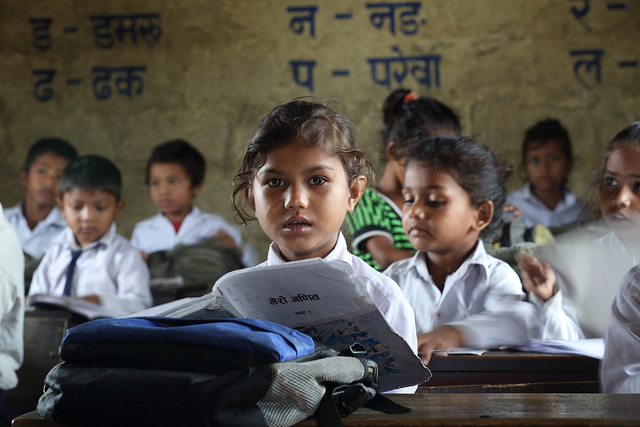Addressing the Nine Most Important Benefits of Education
 Access to education is an ongoing civil rights struggle. Education is not only the accumulation of knowledge but also a chance for students to go beyond their current limitations. The following is a list of 10 of the most important benefits of education.
Access to education is an ongoing civil rights struggle. Education is not only the accumulation of knowledge but also a chance for students to go beyond their current limitations. The following is a list of 10 of the most important benefits of education.
10 Major Benefits of Education
- Improved Health: In developing countries, students are forced to miss school for about 500 million days per year because of sickness. Furthermore, one of the benefits of education for mothers is increasing the survival of her child; a child is 50 percent more likely to live past five years old, 50 percent more likely to be immunized and twice as likely to attend school than children of uneducated mothers.
- Individual Economic Growth: With education comes opportunities to advance in life. One extra year spent at school increases an individual’s earnings by up to 10 percent. There is a positive correlation between literacy rates and high per capita income; education can give someone the chance to increase personal wealth. These benefits of education give people the skillset and knowledge to improve their lives.
- National Economic Growth: Educated civilians would also contribute to the economic growth of their entire country. For example, each additional year of schooling raising the average annual GDP growth by 0.37 percent. Also, providing education for children has a greater benefit than initial cost. The cost of 250 million children not attending school and not learning the basics of education is equivalent to a loss of $129 billion per year. Therefore, education not only advances the country’s economy but also saves the country from major losses.
- Reduction of Poverty: Poverty is a major reason why people in rural communities are unable to attend school. However, education is extremely important in reducing poverty. For instance, if adults had two more years of schooling, a total of 60 million adults would be able to take advantage of more opportunities and escape poverty. Also, if more children were given secondary education, about 20 million people would be lifted out of poverty. This would mean that the number of impoverished people worldwide would reduce by at least 50 percent.
- Gender Equality: Sending daughters to school can be quite expensive for impoverished families, so many choose not to. This leads to women being paid less for their work which prevents them from being able to sustain themselves independently. However, one additional year spent at school can increase a woman’s earnings by 10 to 20 percent.
- Reduction of Child Marriage: In rural communities, the value of a male child can be greater than that of a female child. As a result, if a family has to choose between financing the education of their son or their daughter, the son often gets priority while daughters are left to focus on domestic life. This leads to an increase of child marriage. Over 60 percent of uneducated girls marry before the age of 18.
- Reduction of Child Mortality: One of the benefits of education is having educated parents as it reduces the probability of child mortality. For example, UNICEF found that babies born to young mothers under 18 years old have a 60 percent increased risk of infant mortality than other babies. In 2008, an estimated 1.8 million children’s lives could have been saved in sub-Saharan Africa if their mothers had secondary education or more.
- Self-Dependency: Through education, girls all over the globe are able to build self-reliance and independence through education. Receiving an education allows girls to become empowered women who can fight against poverty. Furthermore, education provides individuals with a promising and secure future for better opportunities and lives. In rural areas, education allows people to overcome poverty by expanding their knowledge and using them to lead better and healthier lives.
- Better Community: An educated individual has a greater chance of contributing to the community. Literate people are more likely to participate in the democratic process and exercise their civil rights while uneducated people may turn to crime and violence to sustain themselves. This can lead to an increase of conflict in the community because impoverished people do not see any other way to survive. Thus, an important benefit of education is educated people working together toward a better and safer community.
Places with fewer resources and fewer guarantees of survival are often stuck in an endless cycle of poverty throughout generations. Restricting education can lead to stunted economic growth and unstable social and political conditions. By ensuring that access to education is uncontested to all communities, society can benefit from an educated population.
– Jenny S Park
Photo: Flickr
